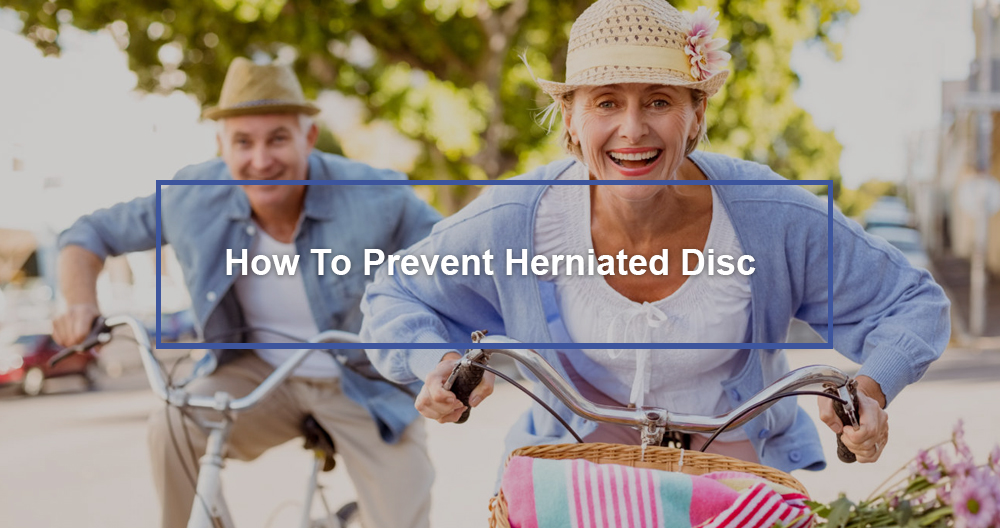
Back pain can be caused by many things. It could be due to injury or improper lifting techniques. These conditions can also lead to back pain. Research has shown that 20% of all 1000 adults suffer pain related to herniated discs. This is an easy guide that will help reduce your chances of developing herniated discs.
What is a herniated disc?
What is the difference between a herniated disc and a bulging disc? Let’s look at your spine. Your spine consists of small bones called the vertebrae. Between each vertebra is located a small disc or cushion. The disc acts like a shock absorber within your spine. It’s composed of a gel-like nucleus as well as an outer layer, called the annulus.
A herniated dis is the disc that has the gel-like center protruding from a disc rupture. The gel-like central can bulge out from a disc tear and press on the spine nerves. This can lead to pain, discomfort, tingling, and even complete numbness. This condition can also refer to slipped discs. Although herniated discs can occur from wear and tear, these five tips can reduce your chances.
Exercise regularly
Regular exercise is an excellent way to reduce your back pain, especially in the case of slipped discs. Your back will be supported better if you strengthen the core muscles. A strong core will reduce the possibility of disc rupture.
Tip – Swimming, cycling, and walking all work well to lose weight. Healthy weight is key to a healthy spine.
Safe lifting is good practice
It doesn’t matter if you’re lifting groceries or heavy boxes, safe lifting practices should be observed. It can cause injury to your spine if you lift too high or without turning. These are safe lifting tips
- Be careful not to lift weights if you are bent.
- Lift your legs up and squat for a better position.
- Ask a friend to join you, if it is possible.
- Keep items away from your body.
A dolly makes it easy to lift awkwardly-shaped or heavy items, and reduces back strain.
Good posture and good posture are key.
Bad posture can cause lower spine pain, no matter if you are sitting or standing. These tips will help you improve the posture of your spine to keep it healthy.
- Standing, align your shoulders with your hips.
- Keep your chin parallel on the floor.
- Avoid sitting, especially if your computer is seated.
- Place your feet flattening upon a hard surface. At 90 degrees, bend your knees.
If you work at home, make some changes to the office. Use a support chair that supports your back to adjust the computer monitor to your eye level. Twisting to look at the screen can cause pain in your back.
Rethink your sleep habits
Although we have only just spoken about posture, good posture is important for all occasions. When you sleep on the stomach, especially if it is on your stomach. This puts too much stress on the spine and cervical spine. These tips will improve your posture during sleep.
- You can lie on your side or back.
- If you want your spine to remain neutral, place a pillow in between your legs (for either side or back sleepers) or below your knees for side sleepers.
- Use a firm mattress
- Mattresses with worn-out or old mattresses can be changed
Not all people need to sleep well. These habits not only are good for your hips but also for your joints.
Say No to Cigarettes
While smoking is well-known as having a detrimental effect on lung health and health, it can also have a significant impact on spinal health. Research has shown that back pain is more common among smokers.
Exercises to Avoid Herniated Discs & Bulging Discs
Regular exercise is an excellent way to lower the risk of developing herniated spines. Once you have one, you need to avoid certain activities. Avoid activities that cause the neck and spine to bend. Avoid any exercises that place pressure on your spine.
These are the kinds of exercises that you should not do:
Sit-Ups
Sit-ups can prove difficult to do correctly. They are not recommended if you have a herniated disc. If you have a herniated spinal disc, it is best to avoid sitting-ups. They can inflict serious injury.
Gentle exercises are good for flexibility and strengthening the back muscles. Swimming, yoga, gentle stretching, stretching that doesn’t revolve the neck and back as well, walking, cycling and other gentle exercises all make good choices.
Squats
To squat you must lean forward and lower your thighs to the ground. This can cause extreme pressure to your spine. If a herniated or bulging disc is present, it’s important to avoid squatting.
Cycling
Avoid forward-leaning during any exercise. Poor posture or long-distance riding may worsen a herniated distal disc. Walking or hiking with a herniated spinal disc is safer and more effective than running. Walking or hiking, which is more gentle on the spine, is safer than doing it in a high-impact way.
Standing Hamstring Stretch
Standing hamstring straining requires that one raises their leg above the surface and leans forward. If the spine curves forward and leans forward, it will increase pressure on herniated spinal discs.
Deadlifts
Deadlifts, which are one the most difficult bulging disk exercises, should be avoided. Deadlifts that are done incorrectly can cause muscle and ligament tear and put too much strain on your spine. To avoid disc damage, you shouldn’t deadlift.
Aerobic Exercise for High Impact
It is vital to be capable of quickly switching between moves in high impact aerobic activity. Jumping, and other plyometric exercise can cause back strain or injury. Instead, choose high-impact aerobic exercise options and plyometric alternatives.
Leg Press
A leg press allows a person to lie down on their side, with their knees parallel to the ground. Then, they push the weights against their spine to increase their strength. This can be a good exercise move, but it can pose danger for people who have herniated spines.
Straight Leg Raises
Straight leg raisings can put too much pressure on your spine. This can cause lower back pain for injured people. If you have herniated discs, you can exercise your legs by using lunges.
Here are some ways to avoid disc herniation
Keep active to prevent flare-ups. These options are not fast fixes and won’t protect your spine. These include:
- Do not lift large objects or lift improperly. This is difficult advice for workers who do a lot in manual labor. Patients can avoid lifting heavy objects. It is not a good idea to re-herniate a disc. The strain will be most severe on the legs.
- When you’re sitting, standing, or moving, don’t slump your spine. Poor posture can place additional pressure on the discs.
- Never sleep on your stomach. How do you sleep with a herniated spine? The best way to sleep with a herniated disc is to lie on your stomach. If you are sleeping on your stomach, it can cause strain to your back.
- Flats are preferable to high heels. Veritas Health suggests that heels can “disrupt” your natural curvature, shifting your weight ahead. This can add more stress to your lower back.
- Keep your weight down. Healthy weight can reduce compression.
- Stop smoking. Global Spine published the results of a study which examined nearly 1,400 cases who required lumbar surgery. It also looked into those who required recurrent Lumbar Disk Herniation. According to the authors, smoking was the leading cause of spinal surgery.
Debunking Myths About Disc Herniation
Herniated discs can have similar mythologies to flu shots. A piece of gum left in the stomach can give you flu symptoms for many years. These myths include
- Each disc damaged can lead directly to serious medical problems. If their discs are at high risk of re herniating they could be prone to serious medical problems. Each case is unique and you should not assume the worst.
- Compressed nerves may cause excruciating pain. Yes, there is some discomfort that can be felt when you pinch nerves. Sometimes, it can be extremely painful. However, it isn’t always. Some people complain of more severe irritations in the feet and legs. This pain is usually manageable.
- One spinal procedure leads to another. This article is intended to show that you can avoid the need for re-herniating discs if they have been injured once. This is not a simple fix. The possibility exists that a herniated disc might require additional surgery. But, this is not a set and forget rule.
- Spine surgeons recommend surgery. Contrary popular belief, surgeons may not always recommend surgery. “Surgery is an option for severe pain or disability but not always the best course.” A study concluded that this was true.

